 By Jesus Arias, KNX Association
By Jesus Arias, KNX Association
The green KNX bus cable has been, for more than 25 years, the reference in home and building control. This physical support for bus signals, elevated to an iconic component thanks to the devoted work of thousands of system integrators, is undoubtedly the dominant communication medium in the portfolio of many KNX manufacturers. If we look at mass-market trends, it is a fact that wireless communication has already been present in our lives for long time: smartphones, laptops, cameras, TVs, speakers – everything is designed for hassle-free installation. Fewer cables mean fewer problems – in theory, at least. Then, why this disparity with our market?
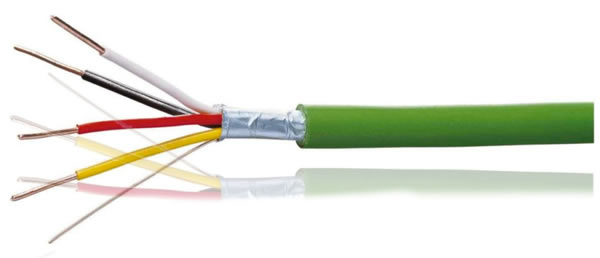
Gaining momentum
One reason is that KNX Partners have been great supporters of a dedicated and tangible cable structure: it is perceived as a solid and professional solution. Also, from the system integrator’s point of view, the offer, in terms of KNX TP devices, has been far richer than KNX RF devices. But there are winds of change in the wireless industry that offer the possibility to broaden the spectrum of KNX projects: KNX RF is here, thanks to the effort of manufacturers, system integrators and completed specifications, tools and products.
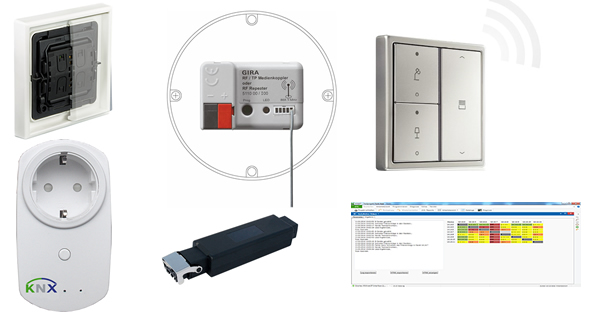
Great opportunities
From a business point of view, and looking at macroeconomic factors in our market, there are great opportunities in retrofitting houses and buildings. Those carrying out retrofit projects are more in favour of wireless technologies because they are easier from the installation point of view, cheaper and generally avoid problems such as having to channel into walls.
Another important factor when using wireless technologies, from the project management point of view, concerns large projects. This has been decisive, for instance, in the nationwide smart meter rollout taking place in France: the ambitious Linky project. These smart meters can be equipped with KNX RF. That’s right; France’s path to 95% digital meter deployment by 2020 relies on KNX RF, so that the smart meter can communicate downstream with existing applications in the house such as appliances, lighting, HVAC etc. It is hard to imagine a project of this magnitude engineered with wired communication!
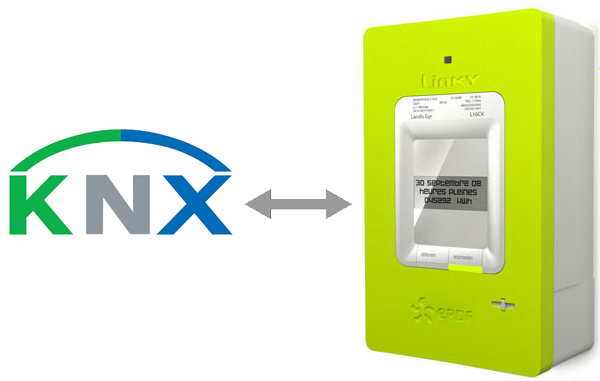
Finally, there is the need, more than never, of convergence between mass-market products/technology and smart homes and buildings.
Why choose KNX RF?
Now that we have clarified why this is the right moment to think of wireless communication in smart homes and buildings, what makes KNX RF the right choice? This slick, wireless technology is designed to perform at its best in homes and building environments thanks to the 868MHz frequency band. This frequency allows perfect wave propagation in interiors, thus reducing the need for repeaters, although repeaters can be installed, which incorporate algorithms to avoid unnecessary repetitions.
From the installation point of view, it makes life much easier, thanks to the seamless experience of using the KNX programming software, ETS. This is a key point, since with the same tool, you can configure a whole installation that includes twisted pair (TP), radio frequency (RF), power line (PL) and Internet protocol (IP) devices.
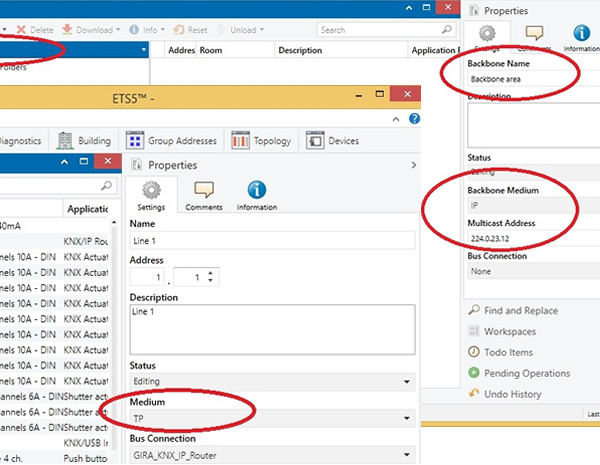
KNX RF devices can be configured either directly using a USB-RF dongle, or via TP/RF media couplers. From the manufacturing point of view, companies can focus on developing products and working with a growing portfolio of certified system components, for a market that can already rely on the system integration expertise and tools necessary to work with those products – a fact very much appreciated by R&D departments.
From the available radio channels point of view, there are two different types of KNX RF, namely Ready and Multi. While KNX RF Ready uses one single channel, KNX RF Multi can work using five different channels, thus enhancing protection against interference. Out of these five channels, three are fast channels and two are slow channels – a perfect combination to increase transmission efficiency depending on the device requirements. For example, temperature sensors only require slow channels to send ambient temperature readings.
Regarding the battery-powered or battery-less devices discussion, KNX RF can support both. The KNX RF protocol is suitable for devices such as push buttons or temperature sensors that harvest energy from sources such as solar cells, movement and vibration. Lastly, KNX RF can also be combined with KNX Secure. This technology provide data protection by encrypting KNX IP telegrams and data, and protecting user data against unauthorised access.
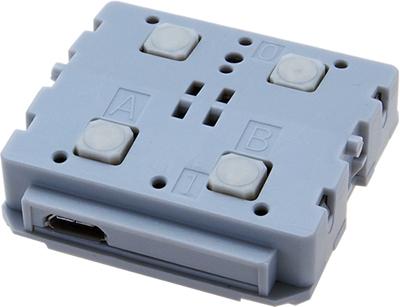
Conclusion
2018 has seen a breakthrough for KNX RF technology: KNX manufacturers have increased their portfolio, making it possible to design a whole installation using exclusively KNX RF products including shutter controllers, switching and dimmer actuators, push buttons, capacitive sensors, motion sensors, window contact sensors, sockets, binary inputs, remote controllers, energy-harvesting push buttons, and KNX Secure push buttons. This trend is growing and all the data on technology maturity, large-scale factors and project indicators herald a brilliant future for KNX RF in smart homes and buildings.
There are great opportunities out there if we all continue working in this direction. It is, undoubtedly, time to rely on KNX RF waves as much as on the KNX green bus!
Jesus Arias is responsible for Members & Solutions at the KNX Association.












